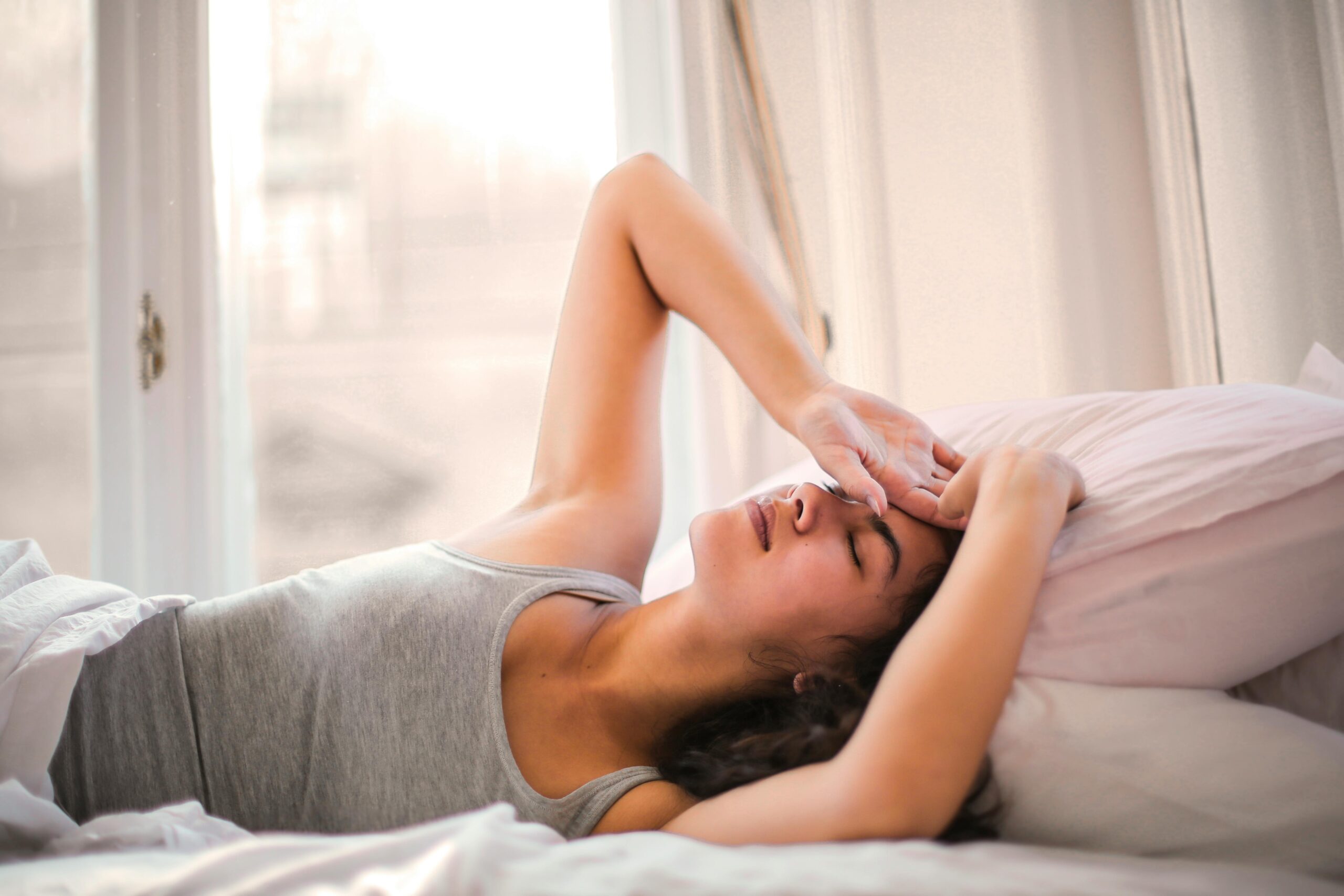There is an important relationship between sleep and hormonal health. Sleep disorders can disrupt important hormones such as cortisol, estrogen, progesterone, and insulin, resulting in a variety of health issues, particularly for women going through menopause, menstruation, or other hormonal transitions.
More than a means of rejuvenation, sleep is crucial for preserving hormonal balance and general well-being. Quality sleep can make all the difference in how women feel every day whether they are menopausal, have irregular menstruation, or other hormonal fluctuations. Sleep problems are common and often aggravate mood swings, weight gain, and exhaustion. Reclaiming better rest and better health depends on an awareness of the link between hormones and sleep.
How Sleep Affects Hormonal Balance
Hormones act as messengers in the body, regulating everything from mood to metabolism. Sleep plays a critical role in keeping these messengers in sync. Disturbances in sleep can cause hormonal abnormalities affecting almost every element of health.
- Cortisol & Stress Levels – Cortisol, the body’s stress hormone, rises when individuals don’t get enough sleep. Elevated cortisol disturbs other hormones, causing anxiety, irritation, and even weight gain.
- Melatonin & Sleep Quality – Melatonin, the sleep hormone, is necessary for a deep and restful sleep cycle. Screen time, stress, and inconsistent nighttime practices can all reduce melatonin synthesis, making it more difficult to fall and stay asleep.
- Estrogen & Progesterone – These hormones affect sleep quality, particularly during menopause and menstruation. Low estrogen can produce night sweats and hot flashes, while low progesterone might make it difficult to fall asleep.
- Insulin & Metabolism – Sleep deprivation can reduce the body’s insulin sensitivity, raising the risk of weight gain and blood sugar imbalance.
- Ghrelin & Leptin (Hunger Hormones) – Poor sleep raises ghrelin (which causes hunger) and lowers leptin (which indicates fullness), leading to cravings and eventual weight gain.
How Hormonal Changes Disrupt Sleep
Women experiencing hormonal shifts, such as menopause, pregnancy, or stress, may have difficulty sleeping. Common challenges include:
- Night Sweats and Hot Flashes – Sudden temperature variations can wake you up several times throughout the night.
 Anxiety and Overthinking – Hormonal fluctuations can create increased tension and racing thoughts just before bedtime.
Anxiety and Overthinking – Hormonal fluctuations can create increased tension and racing thoughts just before bedtime.- Increased Sensitivity to Light and Noise – Hormonal imbalances can make women more susceptible to environmental sleep disruptors.
- Reduced progesterone levels can promote sleep fragmentation, making it difficult to attain deep, unbroken sleep.
Clinical Assessment of Sleep in Menopause
A thorough clinical assessment of sleep can be conducted by various healthcare professionals. Key questions should explore the duration of time spent in bed versus actual sleep, sleep patterns, and the persistence of difficulties in achieving consolidated sleep. A sleep diary can be a helpful tool in tracking sleep habits; however, some individuals may become overly focused on recording their sleep, which can inadvertently exacerbate sleep concerns.
Validated Sleep Assessment Tools
Several widely used and validated questionnaires can aid in assessing sleep quality and identifying underlying sleep disorders:
- Pittsburgh Sleep Quality Index (PSQI): A valuable tool for obtaining an overall picture of sleep quality. [Buysse DJ, Reynolds CF 3rd, Monk TH, Berman SR, Kupfer DJ. The Pittsburgh Sleep Quality Index: a new instrument for psychiatric practice and research. Psychiatry Res. 1989 May;28(2):193-213. doi: 10.1016/0165-1781(89)90047-4. PMID: 2748771.]
- STOP-Bang Questionnaire: Useful for assessing the risk of obstructive sleep apnoea (OSA). However, it has lower sensitivity in women compared to men, leading to potential underdiagnosis.[Chung F, Yegneswaran B, Liao P, Chung SA, Vairavanathan S, Islam S, Khajehdehi A, Shapiro CM. STOP questionnaire: a tool to screen patients for obstructive sleep apnea. Anesthesiology. 2008; 108:812-821.]
OSA is often underdiagnosed in women, as they may present with symptoms different from those typically seen in men. Women with OSA are more likely to report daytime fatigue, lack of energy, insomnia, and mood disturbances, whereas men often exhibit more noticeable signs, such as snoring and observed breathing pauses during sleep.
Interestingly, a small clinical study has shown that oestrogen replacement therapy may help reduce the impact of sleep-disordered breathing, offering potential relief for women struggling with menopause-related sleep disruptions.
Sleep as a Foundation for Hormonal Health
Good sleep is not a luxury; it is a necessity. When sleep is disrupted, it can have a wide-ranging impact on health, from metabolism to emotional resiliency. Understanding the intricate relationship between sleep and hormones explains why prioritizing rest is critical for overall well-being.
MenoBloom recognizes the impact of hormone changes on sleep and daily living. Through education, understanding, and support, we equip women to confidently navigate these transitions. Let us start a conversation about sleep and hormonal health—because every woman deserves to feel her best and rejuvenated.
Sources
https://www.jeanhailes.org.au/news/ask-jean-hailes-about-sleep – Jean Hailles
https://www.healthline.com/health/insomnia/hormonal-insomnia-symptoms
https://www.menopause.org.au/hp/information-sheets/menopause-and-sleep – Australasian Menopause Society



